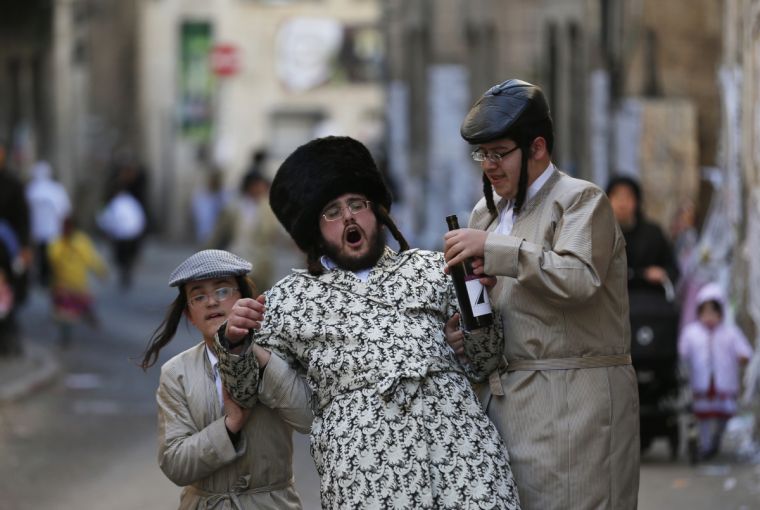Purim 2016: All you need to know about the Jewish festival
The Jewish festival of Purim begins at sunset this evening, marking the start of two days of celebration, remembering God's providence in rescuing the Jewish people from the ancient Persian Empire. It has been celebrated each year on the 14th day of the Hebrew month of Adar – which falls on March 23 this year – for over two millenia.

What's the story behind Purim?
The festival commemorates God saving the Jewish people from a Persian official named Haman.
The story is recorded in the book of Esther, named after the Jewish heroin of the story. In the Biblical account, Haman, the royal vizier to the Persian King Ahasuerus, plans to kill all the Jews in the empire. However his plans are thwarted by two Jews – Mordecai and Esther. Mordecai is the cousin and adoptive father of Esther, who has become Queen of Persia.
Haman's desire to destroy the Jewish people begins when he is insulted by Mordecai refusing to bow to him. He declares that all Jews should be killed, and the King agrees. Meanwhile, Esther – who is married to the King – asks all the Jews to fast for three days.
Esther then arranges a feast to celebrate the end of the fast, inviting both the King and Haman, finally revealing her identity as a Jew. The King – realising that Haman now wants to kill his wife – says he should be hanged, and the Jews are saved.
So, Esther saved the Jews?
Yes, in a way. God used Esther to thwart Haman's conspiracy. She was a simple, orphaned Jewish girl, but was raised up by God to rescue his people from death.
Isn't Esther the book in the Bible that doesn't mention God's name?
Well yes, if you're reading in English. The answer is not so simple when the book is read in its original Hebrew, however.
Though the name of God is not explicitly mentioned, it can be found in the book of Esther five times through the use of acrostics.
Why acrostics?
There are two potential reasons – one practical, and one more thematic.
1. God's name might not have been overtly mentioned because of the context in which in which Esther was written. Tradition holds that Mordecai wrote the book in Persia, where his direct mention of God would have meant he were persecuted. Instead, he disguised his references to the Lord in acrostics.
2. There are no miracles or obvious examples of God's intervention in the narrative of Esther, yet he is by no means absent from these events. The entire story points to God's sovereignty. The Lord redeems his people through the faith and courage of one strategically placed woman. The lack of direct reference to God or the miraculous teaches that God is present in the seemingly natural, sovereign over all.
OK, back to Purim. Why is it celebrated?
To commemorate the Jews' victory over Hamman. It is written in Esther "that they should make them days of feasting and gladness, and of sending portions one to another, and gifts to the poor."
So, how do Jews celebrate?
There are three main ways that Jews celebrate Purim.
Shouting in the Synagogue. During the festival the story of Esther is read out twice. During the reading, when Haman's name appears – 54 times – the congregation starts shouting and using special wooden ratchets to drown out his name. This is practiced around the world, apart from by Spanish and Portuguese Jews (the Western Sephardim), who consider it a breach of decorum.
Giving food and money away. Even the poorest of the poor are to give – there are no exceptions – and anyone who is willing to accept charity may receive. Each adult gives two different foods to one person, and two different donations to two poor people.
Obligitory eating and drinking. Unless you have a good medical reason, every Jew is obliged to eat and drink on Purim. A rabbi named Rava said in the Talmud that one should drink until you can "no longer distinguish between arur Haman (cursed is Haman) and baruch Mordechai (blessed is Mordecai)". The drinking has been taken to different extremes throughout history, some saying it best to drink just a little more than usual and then go to bed, while others say there's no limit.











